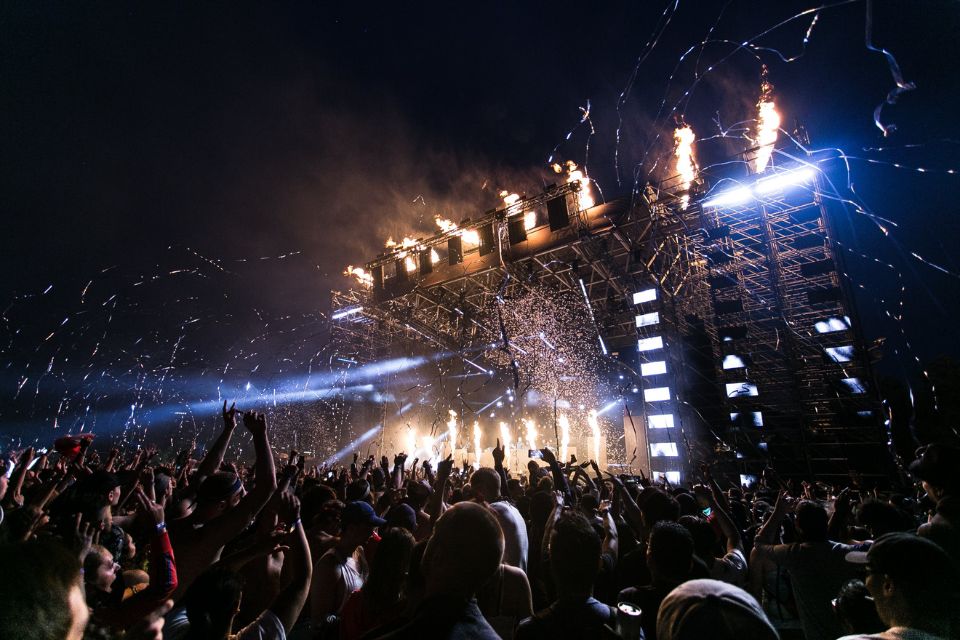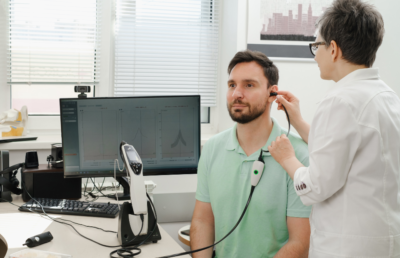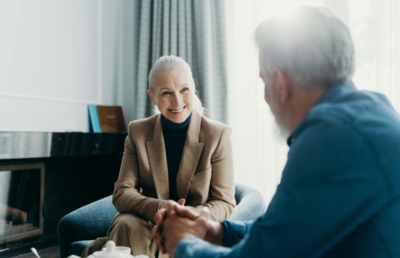Festival season is in full swing in Chicago. While concerts provide an exhilarating experience, it’s essential to pause and consider the impact that attending concerts can have on your hearing.
Understanding the Impact of High Decibels on Hearing
Concerts are often incredibly loud, and exposure to such high decibel levels can significantly impact your hearing health. In fact, such exposure may even lead to temporary or permanent damage if not properly addressed.
While most people dismiss the risks, you should know that there can be long-term and potentially irreversible consequences.
How Loud Music Affects Our Ears
Prolonged exposure to noise above 85 decibels (dB) can cause permanent hearing damage.
Sound levels can easily exceed this threshold in many concert settings, ranging from 90 dB to a staggering 120 dB or more.
At such volumes, our delicate inner ear structures can become overwhelmed, leading to temporary or permanent hearing loss.
The Link to Tinnitus: Ringing in Your Ears
Tinnitus, often described as a ringing, buzzing, or hissing sound in the ears, is a common concern among concertgoers and musicians.
While it can have various causes, exposure to loud music can contribute to tinnitus development. Excessive noise levels at concerts can overstimulate the auditory system, resulting in persistent phantom sounds.
For many, tinnitus can be disruptive and impact quality of life, making preventative measures all the more important.
Protecting Your Hearing at Concerts
Taking proactive measures to protect your hearing is essential.
Invest in Hearing Protection
Hearing protection devices are one of the most effective ways to safeguard your ears during concerts.
Custom earplugs, for example, can significantly reduce the intensity of sound reaching your ears while maintaining the clarity of the music. Investing in high-quality hearing protection ensures you can enjoy the concert without compromising your hearing health.
Find Optimal Listening Positions and Take Breaks
Some spots at a concert are better than others. Front row or right up against the stage may seem like an ideal place, but it’s not great for your hearing health.
It is best to position yourself away from the speakers and at a reasonable distance from the stage. If you can, consider taking short breaks and seeking out quieter areas in the venue as a way to offer your ears some temporary relief.
How to Know When Noise is at a Harmful Level
It is not only concerts that pose risks to your hearing. Any sound above 85 dB carries some risk, but its impact depends on how often you are exposed to those levels, for how long, and whether or not you use protective gear like ear plugs.
There are many things we come across each day that exceed 85 dB, including:
- Heavy traffic
- Noisy restaurants
- Subways
- Power lawnmowers and leaf blowers
- Loud vehicles like ATVs, motorcycles, and snowmobiles
- Chainsaws
- Car races
- Gunshots
- Sirens
As these examples demonstrate, there is a wide range of environments and circumstances that can expose you to harmful decibel levels. But it can be hard to determine if you are being exposed to dangerous noise levels. Being in a noisy restaurant, for example, may be less obvious than being trackside at a motorsport event.
Fortunately, there are a few ways you can tell if the noise level is too loud. Now, Apple Watch and Apple iPhones have a noise level reading available and can alert the user when dangerous noise levels are found.
If you have to speak loudly, or shout, to be heard by someone an arm’s length away, it could be a sign of excessive noise. Similarly, if you are struggling to hear someone speaking at a conversational level an arm’s length away, it can also be a sign of excessive noise.
If the noise level causes discomfort or pain in your ears or you experience a buzzing or ringing during or after exposure to the noise, it indicates that the noise you were exposed to was too loud.
Awareness of these signs can help you assess and protect your hearing, no matter where you are.
Embrace the Music but Preserve Your Hearing
Whether you’re attending a sold-out stadium show, enjoying the blues at a smaller venue, or spending the night at the symphony, protecting your hearing should be a priority.
Taking steps to protect your hearing is essential, and the support and guidance you can find from an audiologist are invaluable.
Audiologists can provide custom hearing protection for music fans, venue staff, and musicians. They can work with you to find the right solutions for your needs. Additionally, audiologists perform regular hearing evaluations that can detect any early signs of hearing loss or tinnitus, and offer effective management strategies.
Contact us today to learn more, or schedule an appointment to get started.




